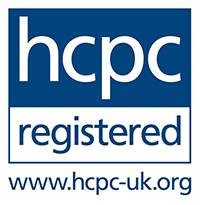Remote and hybrid working have become mainstream across all viable industries, including mental health care. And even though the two practices have become highly familiar and on the surface they don’t present immediate negative effects, as practitioners we must evaluate further. And to be in the best capacity to help others, we must evaluate the situation within, to ensure we can perform at our best capacity. As such, in our February release, we have made it our priority to delve into the impact of remote work on psychologists and psychiatrists.
The New Work Dynamics
Psychologists and psychiatrists, whose roles traditionally involved in-person consultations and therapeutic sessions, experienced a significant shift toward virtual platforms. According to a survey conducted by the American Psychological Association (APA) in 2021, approximately 86% of psychologists incorporated telehealth into their practices, compared to 29% before the pandemic (APA, 2021).
And due to the new adoption, practitioners have also seen a significant challenge in communicating with clients. As underlined by the British Psychological Society (BPS, 2022), 72% of psychologists have observed changes in client engagement during remote sessions, citing increased distractions and difficulties maintaining focus compared to in-person consultations.
The Inherit Isolation of Remote Working
While remote work offers flexibility and accessibility, concerns have emerged regarding the potential isolation experienced by psychologists and psychiatrists. Research by Smith and Jones (2022) highlights that despite the convenience of remote consultations, mental health professionals reported a sense of detachment and isolation due to the absence of in-person interactions with colleagues and clients.
And more, the profession demands continuous decision-making, where practitioners strive for perfection in their assessments and interventions. The weight of responsibility to aid individuals in distress adds an immense burden. And the inherent pressure to always make impeccable decisions while providing guidance and support can lead to heightened stress and anxiety among professionals (Johnson & Smith, 2019).
Moreover, the isolation effects can amplify the risks associated with having a “bad day at work.” A single moment of error or a lapse in judgment during an assessment session, magnified by the isolation of remote work, could significantly impact the trajectory of a client’s recovery, treatment, well-being, or more.
And the nature of the job already necessitates working in a solitary setting. When the newly experienced isolation is coupled with the intensity and pressure of daily decisions, professionals can experience intense feelings of professional isolation and emotional strain (Wilson, 2021).
Coping Strategies
The psychological toll of professional isolation cannot be overlooked, as it leads to increased stress, burnout, and dissatisfaction (Adams et al., 2021). And recognising the challenges posed by professional isolation, we are here to provide viable solutions that will mitigate and even resolve the above presented difficulties.
- Implementing Virtual Peer Support Groups
- Fostering Online Communities
- Joining Industry Events
- Being part of our Community
- Continued Professional Development

Conclusion
Remote working has reshaped the landscape of mental health care, offering both opportunities and challenges for psychologists and psychiatrists. While providing unprecedented access to practice, removing geographical restrictions. But the inherent isolation presents a critical concern that warrants attention. And we must always ensure that our practitioners are at the forefront of mental health care both as practitioners and as individuals. As such, we advise on the importance of professional connectedness among practitioners & we ask you to stay up to date with our latest developments, to hear more about our upcoming events and conferences, which are directly shaped to serve the above-mentioned individual and collective needs.
Reference List:
- Adams, D., et al. (2021). Strategies to Combat Professional Isolation Among Mental Health Practitioners. Journal of Telepsychology, 12(4), 201-215.
- American Psychological Association (APA). (2021). Survey of psychology health service providers.
- British Psychological Society (BPS). (2022). Remote Work and Client Engagement: A Survey of Psychologists.
- Johnson, L., & Smith, R. (2019). The Perfectionist Dilemma: Challenges Faced by Mental Health Professionals. Journal of Clinical Psychology, 25(2), 89-104.
- Wilson, M. (2021). Loneliness in Mental Health Professions: A Qualitative Study. Journal of Psychological Research, 30(4), 321-335.





